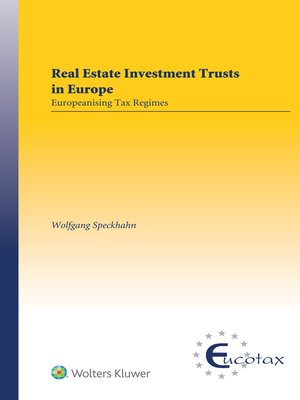Real Estate Investment Trusts In Europe
ebook ∣ Europeanising Tax Regimes · EUCOTAX Series on European Taxation
By Wolfgang Speckhahn

Sign up to save your library
With an OverDrive account, you can save your favorite libraries for at-a-glance information about availability. Find out more about OverDrive accounts.
Find this title in Libby, the library reading app by OverDrive.



Search for a digital library with this title
Title found at these libraries:
| Library Name | Distance |
|---|---|
| Loading... |
It is well known that investments in real estate provide relatively stable yields compared with stock market volatility, so it is not surprising that, with globalisation, investors have pursued such opportunities across borders, especially where foreign countries offer beneficial tax regimes. Nor it is surprising that states should fear erosion of their tax base in the presence of such investments. This groundbreaking book – the first in-depth comparative analysis of taxation of real estate investment trusts (REITs) in different European Union (EU) Member States – investigates the impact of EU law on direct taxation in the case of REITs, and whether EU policies in this area have led national legislators to adjust their REIT regimes.
Presenting detailed case studies of three EU Member States – France (a well-established REIT regime), Bulgaria (a new accession state) and Spain (a recent REIT regime) – this book explores the idea of a harmonised EU REIT, and whether harmonisation among national REIT regimes may be possible. Among the issues and topics arising in the course of the presentation are the following:
The analysis ultimately documents conditions and circumstances for the creation of a harmonised 'Euro-REIT' by assessing the level of change on the area of direct taxation within the Member States which would be needed for such a creation to become reality, identifying common themes across different legal systems that could assist the harmonisation of laws. Throughout, a holistic view is taken, linking tax and company law with considerations of sovereignty, policy and culture.
In its structured framework comparing REIT regimes, this incomparable study takes a giant step towards overcoming resistance to a common REIT taxation regime in the EU. As the first comparative study of REIT regimes to identify an emerging common understanding informed by European jurisprudence and Europeanisation policy and theory, it is sure to be welcomed by practitioners, academics and policymakers in European law and international taxation as well as European studies.







